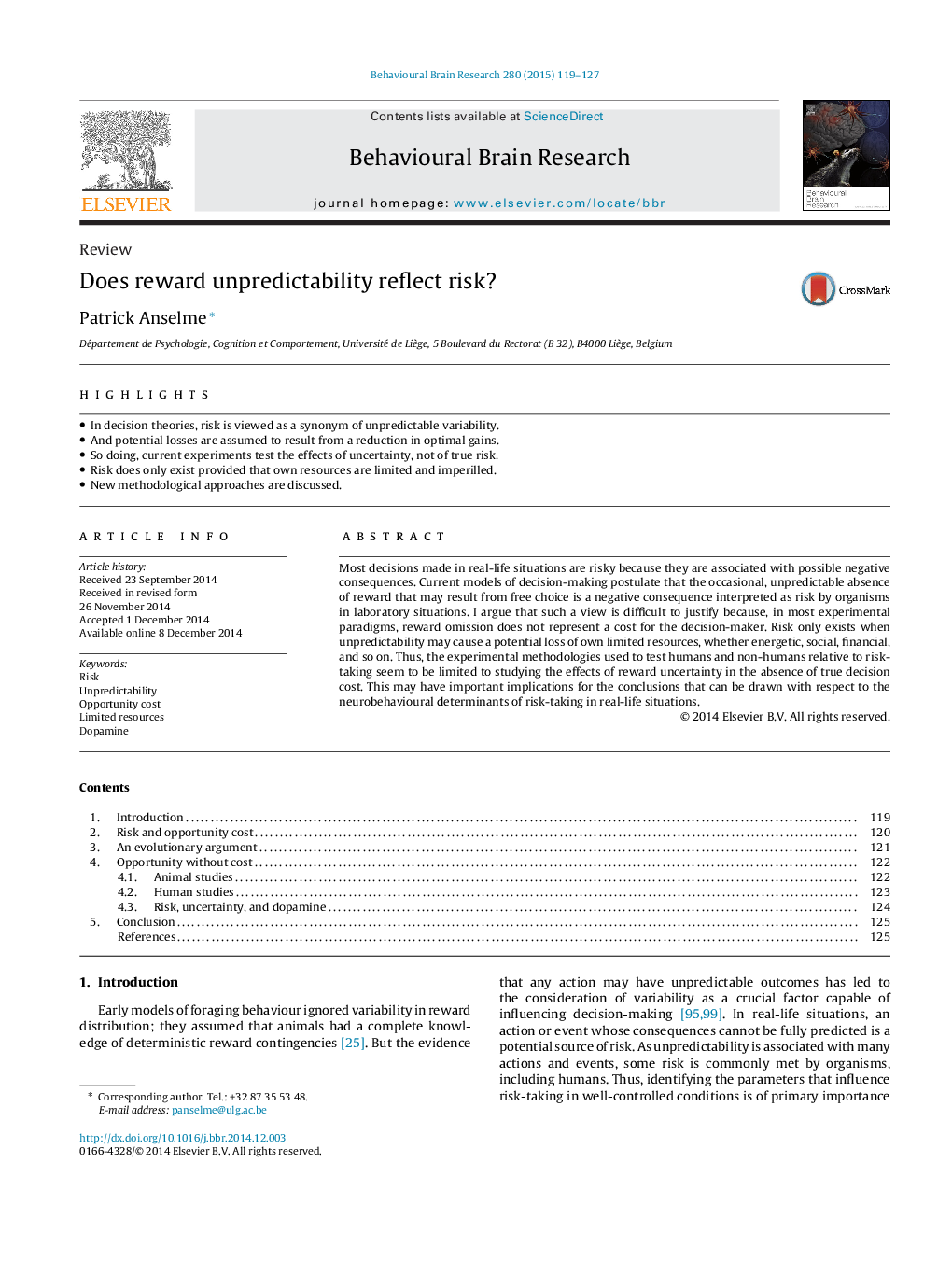| کد مقاله | کد نشریه | سال انتشار | مقاله انگلیسی | نسخه تمام متن |
|---|---|---|---|---|
| 6256833 | 1612952 | 2015 | 9 صفحه PDF | دانلود رایگان |

- In decision theories, risk is viewed as a synonym of unpredictable variability.
- And potential losses are assumed to result from a reduction in optimal gains.
- So doing, current experiments test the effects of uncertainty, not of true risk.
- Risk does only exist provided that own resources are limited and imperilled.
- New methodological approaches are discussed.
Most decisions made in real-life situations are risky because they are associated with possible negative consequences. Current models of decision-making postulate that the occasional, unpredictable absence of reward that may result from free choice is a negative consequence interpreted as risk by organisms in laboratory situations. I argue that such a view is difficult to justify because, in most experimental paradigms, reward omission does not represent a cost for the decision-maker. Risk only exists when unpredictability may cause a potential loss of own limited resources, whether energetic, social, financial, and so on. Thus, the experimental methodologies used to test humans and non-humans relative to risk-taking seem to be limited to studying the effects of reward uncertainty in the absence of true decision cost. This may have important implications for the conclusions that can be drawn with respect to the neurobehavioural determinants of risk-taking in real-life situations.
Journal: Behavioural Brain Research - Volume 280, 1 March 2015, Pages 119-127